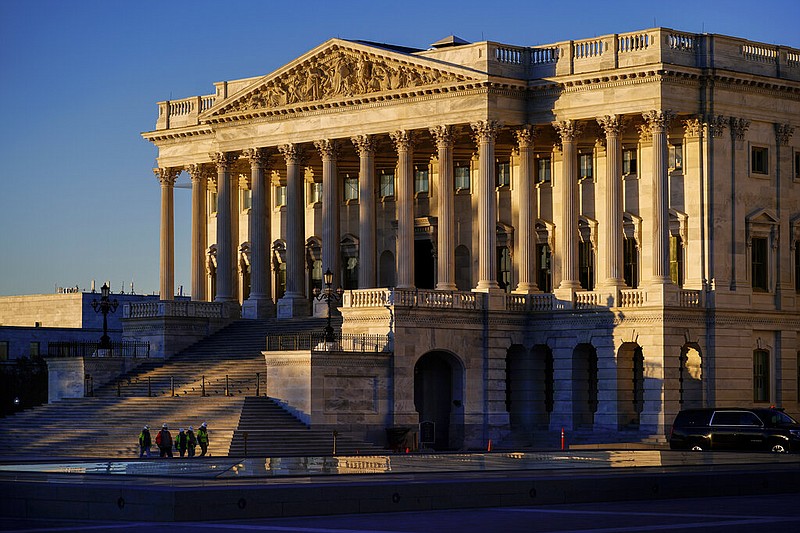WASHINGTON -- The U.S. House passed a legislative package to address mental health and drug abuse, including a provision sponsored by Arkansas Republican French Hill that would encourage the prescribing of medication that can reverse opioid overdoses.
The bipartisan provision, which was originally a stand-alone bill, would make changes to two Public Health Service Act grant programs.
Under the legislation, grant money could be used to set up a program to prescribe medication like naloxone that can reverse the effects of an opioid overdose.
Grant money under the legislation could also be used to set up protocols to connect overdose patients with treatment, including with counseling and behavioral therapies and overdose reversal medications.
The measure from Hill, which was also backed by Democratic U.S. Rep. Debbie Dingell of Michigan, would encourage health care providers to co-prescribe opioid reversal medication.
"My bill seeks to prevent opioid overdoses through co-prescription. This effort was inspired by my home state of Arkansas," Hill of Little Rock said during a floor speech Wednesday, adding that the state is one of more than a dozen that has co-prescribing.
Co-prescribing means a doctor prescribes an opioid overdose reversal medication with an opioid prescription, Hill said, declaring that the practice saves lives.
With co-prescribing, a reversal medication could be used to save a patient who was legally prescribed opioids and accidentally overdoses, according to Hill's office.
Dingell described co-prescribing as a "proven method to reduce overdose deaths" during a House floor speech.
Drug overdose deaths in the U.S. trended upward following the start of the coronavirus pandemic, a pattern seen in Arkansas as well, according to provisional data from the U.S. Centers for Disease Control and Prevention.
The CDC has estimated that upward of 107,000 people died of drug overdoses in 2021 in the U.S., according to provisional data.
In 2020, the drug overdose death rate for Arkansas was 19.1 per 100,000 people, according to the CDC.
The drug overdose death rate in the U.S. was 28.3 per 100,000 that same year, according to the CDC.
The larger mental health and substance abuse package cleared the House in a 402-20 vote. Arkansas' all-Republican House delegation voted for the measure.
"This is exactly how Congress is supposed to work, where you bring ideas from both sides of the aisle and you tailor them to where you can have strong bipartisan support," Hill said in an interview Thursday.
Arkansas Drug Director Kirk Lane, in a written statement, said "so much of the epidemic is fueled by profit at the demise of Americans and their families."
"In this effort we realize that life comes first, and if alive, recovery is possible," he said.
The larger legislative package, which would reauthorize programs that are part of the Substance Abuse and Mental Health Services Administration, must still pass the U.S. Senate.
The agency, which is part of the U.S. Department of Health and Human Services, leads "public health efforts to advance the behavioral health of the nation," according to its website.
"I do think there's support," Hill said. "Mental health issues, since I've been in Congress, have been very bipartisan."
U.S. Rep. Bruce Westerman of Hot Springs said he's heard from teachers who are seeing an increased need for mental health services in schools since the coronavirus pandemic.
"I think a lot of the isolation had a lot to do with that, so this is a bill that addresses that," he said.
U.S. Rep. Steve Womack of Rogers, in a written statement, said the legislative package will help bring "hope, healing, and life-saving services."
"We need to bring the silent epidemic of mental health and substance abuse issues out of the shadows," he said. "Targeted resources to help those struggling is how we transform lives and communities."
U.S. Rep. Rick Crawford of Jonesboro, in a written statement, said the legislation "is vital at getting the resources needed to those who suffer from mental health issues and substance abuse disorders."
